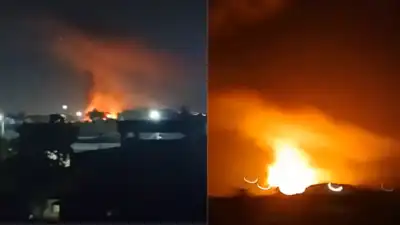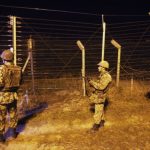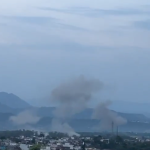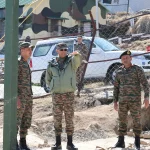Pakistan has officially shut down its airspace and suspended all flight operations following missile strikes on three strategic air bases late Friday night. The attacks, which targeted Nur Khan Air Base in Rawalpindi, PAF Rafiqui Air Base in Shorkot, PAF Murid Air Base in Chakwal, PAF Sargodha, PAF Sukkur, PAF Rahim Yar Khan and PAF Jacobadbad have further intensified already soaring tensions between Pakistan and neighboring India.
India also targeted radars sites in Sialkot and Pasrur.
According to a statement released by Pakistani authorities, the missile strikes are believed to be part of a retaliatory offensive by India in response to recent ceasefire violations and alleged attacks on Indian soil. Intelligence sources cited by Indian media claim that India launched the strikes after Pakistan allegedly carried out missile and drone attacks earlier in the week, prompting India to shut down 24 airports across its northern region on May 8.
The Nur Khan Air Base, near Islamabad, is a vital command center for air defense and transport operations, while PAF Rafiqui hosts advanced fighter squadrons including the JF-17 Thunder and Mirage aircraft. The Murid Air Base has also become increasingly involved in Pakistan’s drone warfare capabilities.
The Pakistan Army has confirmed the missile strikes but asserted that its air defense units intercepted most of the missiles, minimizing structural damage. However, the attacks have led to immediate operational disruption, particularly in aviation. International airlines, including British Airways, Lufthansa, and Emirates, have begun rerouting flights to avoid Pakistani airspace, resulting in longer travel times and increased fuel costs.
The recent surge in hostilities follows a deadly terrorist attack in Kashmir last month that killed several Indian tourists. India accused Pakistan of harboring terrorist groups linked to the incident, a claim that Islamabad has firmly denied. The incident has reignited long-standing hostilities over Kashmir, a region that has remained a flashpoint between the two nuclear-armed nations for decades.
United Nations Secretary-General António Guterres has called for restraint from both sides, warning that the situation could “easily spin out of control” if not de-escalated. Security has been heightened in major cities across both countries, especially after reports of a new attack in Jammu on May 9.
As both countries remain on high alert and engage in tit-for-tat military actions, the international community watches with growing concern over the potential for a broader conflict in South Asia.













